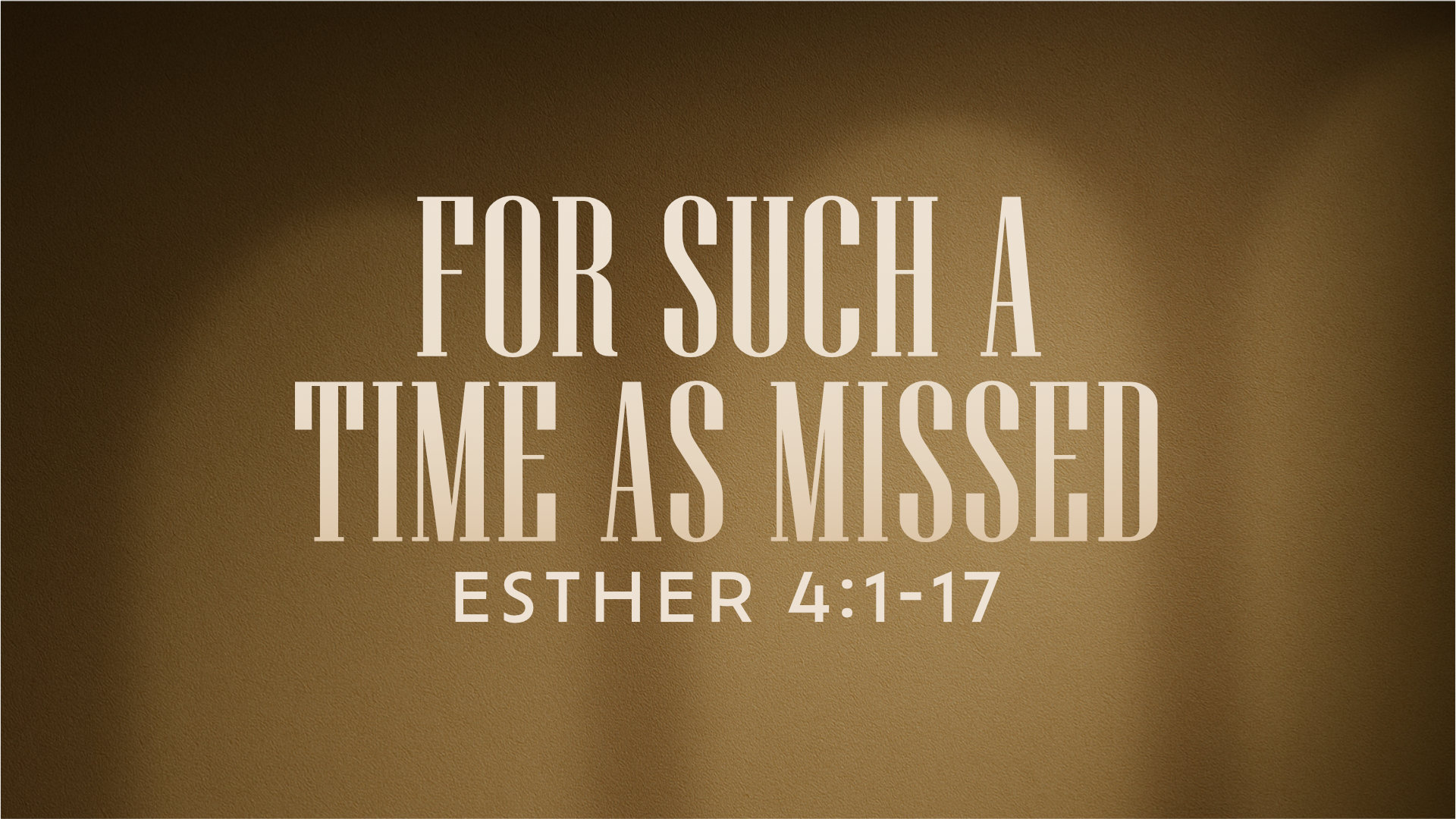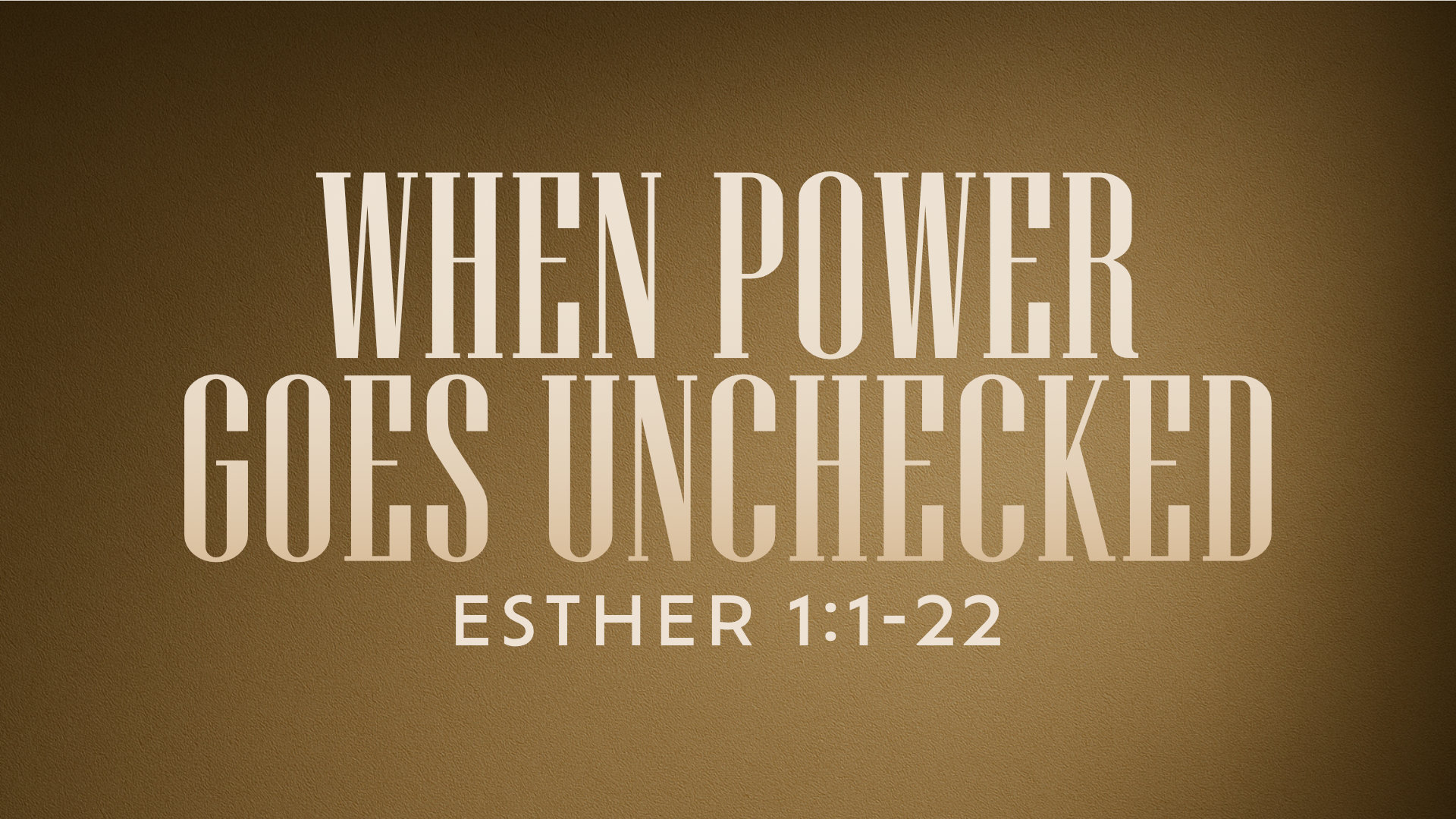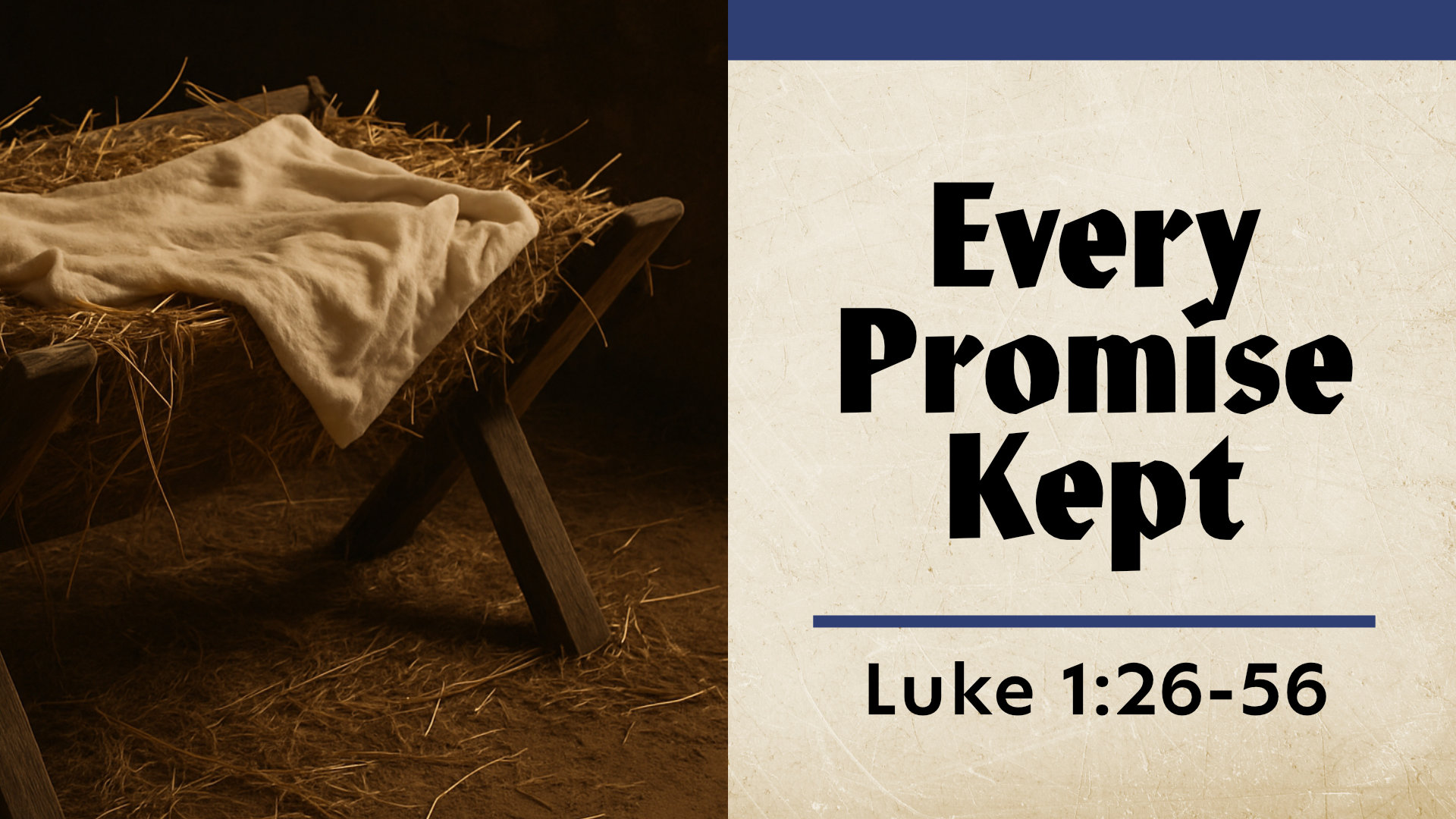For Such a Time as Missed
Mordecai urged Esther to intervene for the sake of God’s people but trusted their survival even if she refused. We must remember that God’s will advances, with or without us.
God's Will
For Such a Time as Missed
Mordecai urged Esther to intervene for the sake of God’s people but trusted their survival even if she refused. We must remember that God’s will advances, with or without us.
Setup
- Esther, a Jewish orphan, rose unexpectedly to the Persian throne (1–2).
- Haman’s prideful hatred secured a royal decree to destroy her people (3).
Situation
- Lament – God’s people mourned the decree through fasting, weeping, and wailing (4:1–8).
- Limitation – Esther acknowledged the risk of approaching the king uninvited and the danger of remaining passive (4:9–11).
- Leadership – Esther embraced her moment with courage, choosing to intercede regardless of the cost (4:12–17).
Shadows
- God placed Esther in the palace before the threat ever reached the Jews.
- Mordecai was confident the Jews would endure, because God’s promise of a Messiah could never fail.
Significance
- Embrace His Invitation — God doesn’t need me, but He wants me.
- Rest in His Sovereignty — None of my failures can thwart His plans.
- Rely on His Sufficiency — God welcomes my effort, but He never depends on it.





































